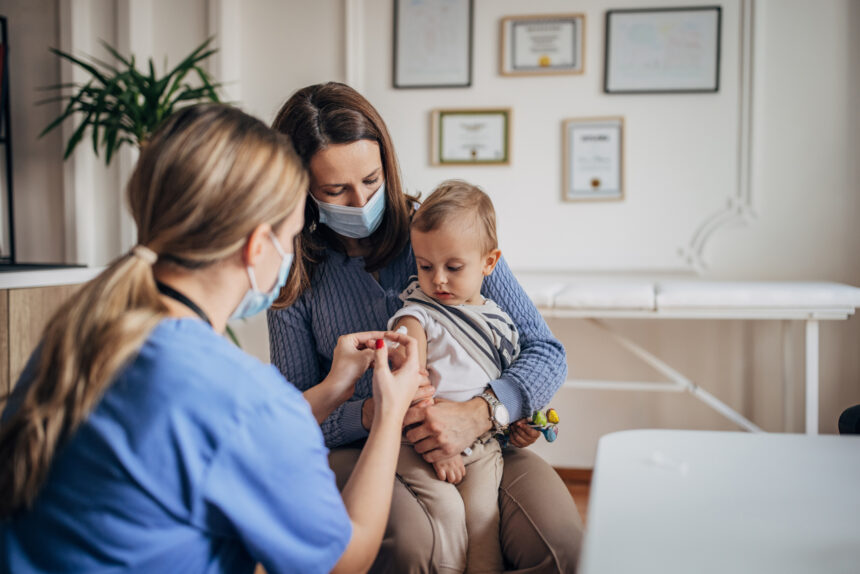The Centers for Disease Control and Prevention (CDC) isn’t usually in the news. They usually work quietly. But this week is different. Families, doctors, and public health leaders are really watching what’s happening in Atlanta. The CDC is voting on changes to the vaccine plan for kids, vaccines that really matter for their health.
Two vaccines are getting a lot of looks: the MMRV vaccine (for measles, mumps, rubella, and chickenpox) and the hepatitis B vaccine (which protects kids from a virus that can cause bad liver problems). It might sound like a normal meeting, but what they decide this week will really change things for doctors’ offices, schools, and homes.

First, let’s talk about MMRV. It’s been around, and it works. Measles used to kill lots of children in the U.S. Now, outbreaks happen where people aren’t vaccinated. This vaccine protects against four diseases with one shot. Easy. But the CDC’s Advisory Committee on Immunization Practices (ACIP) is thinking about whether it can be even better. Should the plan be changed based on what we know now and what parents and doctors are seeing?
Then there’s hepatitis B. It’s not talked about as much, but it’s still a danger. It can spread from a mother to her baby when she gives birth or through blood. It can hide for years before hurting the liver. Since the 90s, babies have been getting the vaccine, which has really lowered the number of cases. Now, experts are checking how long the protection lasts. Can the shots be spaced out better? Can the plan be made easier for parents who are dealing with many vaccines?
So, why change things now? The answer is easy: we have more facts. Studies show how kids react to these vaccines over time, what side effects are common, and what vaccine plans work for families. For scientists, it’s data. For parents, it’s real life. Each doctor visit can mean time off work, waiting, and maybe some crying.
Vaccines are more than science these days. They cause lots of opinions. Some parents think they save lives. Others worry about side effects or the government getting involved. The CDC knows this. Doctors and parents who are watching the news and trying to decide what to believe will pay close attention to what the CDC says.
Inside the CDC, it’s serious. Experts in suits with papers and slides will talk about plans, dangers, and numbers. Outside, parents are wondering if their kids will be safer. Will a shot cause more fevers or seizures? Will changes mean more shots or fewer? These are the questions that parents care about.
Doctors are in a hard place. One doctor said that parents want clear answers, not more confusion. Any change makes a domino effect: new forms, codes, and changes to vaccine orders. It’s complex, and kids are important. There’s also trust. The CDC is still trying to fix its image after the pandemic. Some people think they were too political, too slow, or unclear. This vote is more than health; it’s a test. Parents will watch to see if the process is open, if the experts are honest, and if it’s about kids’ health.
If the committee votes yes, families could see new vaccine plans soon. This could mean an easier schedule. Schools and insurance usually follow the CDC, which makes the changes official. It could mean fewer shots, less stress for parents, and better protection for kids. If they vote no, things stay the same. Kids will still be safe, but the chance to change plans and lower stress will be gone. For parents who feel stressed by the number of shots, this could be sad.
Remember why this is important. Diseases like measles were gone in the U.S. in 2000, but are back where people aren’t vaccinated. Chickenpox can cause big problems. Hepatitis B spreads quietly and takes years to show. Vaccines are our protection. The question is how to use them best. For families, this is big. A mom in Ohio checks her phone while her child sleeps, hoping the CDC will make her life a little easier. A dad in Texas is wondering if he’ll have to miss work for a vaccine visit. These decisions happen in real life, in stores, parks, and homes.
The decision might seem small, just a change to a plan. But for busy parents, it could be a relief: one less doctor visit and one less reason for a child to cry That’s why this week is important. It’s not just rules. It’s about making life easier and safer for families. In the end, it’s about the kids. And every parent wants their children to be healthy and safe from diseases that we can stop.











